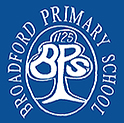Literacy at BPS
Curriculum
Students work in a differentiated learning environment to enhance and develop their individuality and celebrate their success.
Junior School classes participate in a morning Literacy block. During the Literacy block students engage in a variety of learning opportunities centered on building and strengthening students’ Literacy skills.
Instructional Model
At Broadford Primary School we follow the Workshop model from Foundation through to Grade 6. As a whole school our students have a one hour Reading lesson and a one hour Writing lesson every day that includes:
- Mini-lesson – Explicit brief instruction introducing one skill or idea. The teacher reads or writes for or with the class.
- Independent Reading and Writing – Students complete independent, differentiated and authentic reading and writing tasks matched to the learning intention and/or personal goals.
- Reflection – Students reflect on the explicit learning intention articulated at the start of lesson and their achievements towards their personal learning goals
Reading and Viewing
Children are exposed to a learning environment enriched through daily literacy exercises. Each morning, students are welcomed into the classroom to begin their morning reading routine, followed by independent reading and scaffolded reading group sessions aimed at their individual needs. We celebrate many different genres through whole class, small group and individually-read texts. Students listen to, read and view a variety of texts for enjoyment, including fiction and nonfiction texts.
Literacy teaching is focused on word solving, fluency and comprehension strategy instruction and allows for specific and targeted teaching based on our students’ reading needs. Students participate in activities to develop their reading comprehension skills and use a Reader’s Notebook to reflect and respond to their reading.
Writing
Students participate in daily Writing lessons in which they are taught to develop the structure, style and language of the different writing genres. These include Informative, Narrative and Persuasive. Within these genres, students are exposed to many different text-types in which they can use to meet the purpose of their writing.
Through explicitly taught writing lessons, we aim to improve students’ ability to become initiators of writing with a focus on their person writing processes and the quality of their writing. Students use a Writer’s Notebook to gather ideas and inspirations for their writing which is personal to each student, providing students with the opportunity to write about topics and interests which truly matter to them. Students use a writing process which is familiar and comfortable for them ensuring that they rehearse, draft, revise, edit, confer and sometimes publish their writing pieces. Whilst drafting and revising, students focus on developing their ideas, effectively organizing their writing, using strong word choices, including a variety of sentence lengths and types and the conventions of writing to ensure that they are focusing on the quality of each writing piece.
Speaking and Listening
Students regularly participate in classroom discussions, respond to text and present projects and reports to their classmates. Students are encouraged to speak in a clear voice, using eye contact to engage their audience and be organised in their delivery. Students work collaboratively during Literacy learning time, developing their abilities to be involved in substantive conversations.
Literacy Intervention
At Broadford Primary School we offer our students a program designed to assist F-2 children to improve their literacy in primarily reading but also writing and spelling. Children work one-to-one or in a group with three or four others who are of a similar standard with an experienced teacher 4-5 times per week. These lessons are given in addition to literacy instruction which occurs in their classroom. They are closely related to what the children are covering in class and the intervention teacher regularly communicate with the class teacher to discuss the children’s goals and progress.
